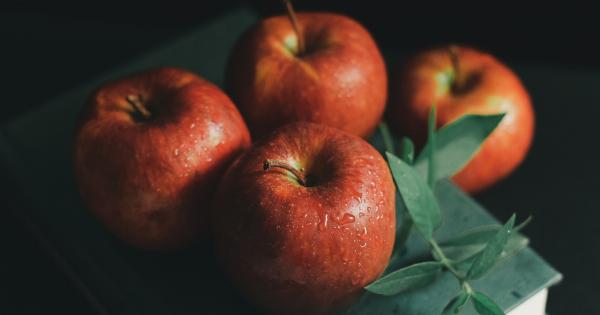Vitamin D3, also known as the sunshine vitamin, plays a crucial role in maintaining overall health and well-being. It is a vital nutrient that our bodies need to function properly.
While sunlight is the primary source of vitamin D, certain foods also contain this essential vitamin. In this article, we will explore the importance of vitamin D3 and share a list of foods that are rich in this vital nutrient.
The Importance of Vitamin D3
Vitamin D3 is essential for various bodily functions, including:.
- Bone Health: Vitamin D3 helps in the absorption of calcium and phosphorus, which are crucial for maintaining healthy bones and teeth.
- Immune System: It plays a vital role in supporting the immune system and helps in fighting off infections and diseases.
- Cardiovascular Health: Vitamin D3 is associated with a reduced risk of heart disease and controlling blood pressure levels.
- Mental Health: Some studies suggest a link between vitamin D3 deficiency and mental health issues such as depression and anxiety.
- Muscle Function: Vitamin D3 helps in maintaining healthy muscle function and reducing the risk of muscle weakness and falls, especially in older adults.
Foods High in Vitamin D3
If you are unable to get enough sunlight exposure, incorporating vitamin D3-rich foods into your diet can help meet your daily requirements. Here are some foods that are excellent sources of vitamin D3:.
1. Fatty Fish
Fatty fish like salmon, trout, and mackerel are some of the best natural sources of vitamin D3.
Just 100 grams of cooked salmon can provide around 988 IU (International Units) of vitamin D3, which is more than the recommended daily intake for most individuals.
2. Egg Yolks
Egg yolks are another great source of vitamin D3. One large egg yolk contains approximately 37 IU of vitamin D3. Remember to consume eggs in moderation as they are also high in cholesterol.
3. Mushrooms
Some varieties of mushrooms, especially wild mushrooms or those exposed to ultraviolet light, contain substantial amounts of vitamin D3. Shiitake and maitake mushrooms are particularly good sources.
4. Fortified Dairy Products
Foods like milk, yogurt, and cheese are often fortified with vitamin D3. Check the labels to ensure they are enriched with this essential vitamin. Just one cup of fortified milk can provide around 115-130 IU of vitamin D3.
5. Beef Liver
Beef liver is a nutrient powerhouse, and it is also a great source of vitamin D3. A 100-gram serving of beef liver can provide approximately 50 IU of vitamin D3. However, it is important to consume liver in moderation due to its high vitamin A content.
6. Cod Liver Oil
Cod liver oil is known for its high vitamin D content. Just one tablespoon of cod liver oil can provide more than the recommended daily intake of vitamin D for adults.
However, be cautious while consuming cod liver oil, as it is also high in vitamin A, which can be toxic in large amounts.
7. Fortified Cereals
Some breakfast cereals are fortified with vitamin D3, making them a convenient way to add this nutrient to your diet. Check the labels for the exact amounts, as they can vary from brand to brand.
8. Soy Milk
Fortified soy milk is an excellent plant-based source of vitamin D3 for vegans and individuals who are lactose intolerant. One cup of fortified soy milk typically contains around 100 IU of vitamin D3.
9. Tofu
Tofu, made from soybeans, is another plant-based option to consider. Depending on the brand and how it is processed, tofu can provide around 80-180 IU of vitamin D3 per 100-gram serving.
10. Orange Juice
Some brands of orange juice are fortified with vitamin D3. Check the labels for the specific amount of vitamin D3 in each serving. Keep in mind that natural orange juice does not naturally contain vitamin D.
Remember, while these foods are good sources of vitamin D3, it may be challenging to meet your daily requirements through diet alone, especially during the winter months or if you have limited sun exposure.
In such cases, it is advisable to consult a healthcare professional who may recommend vitamin D3 supplements to ensure adequate levels.






























